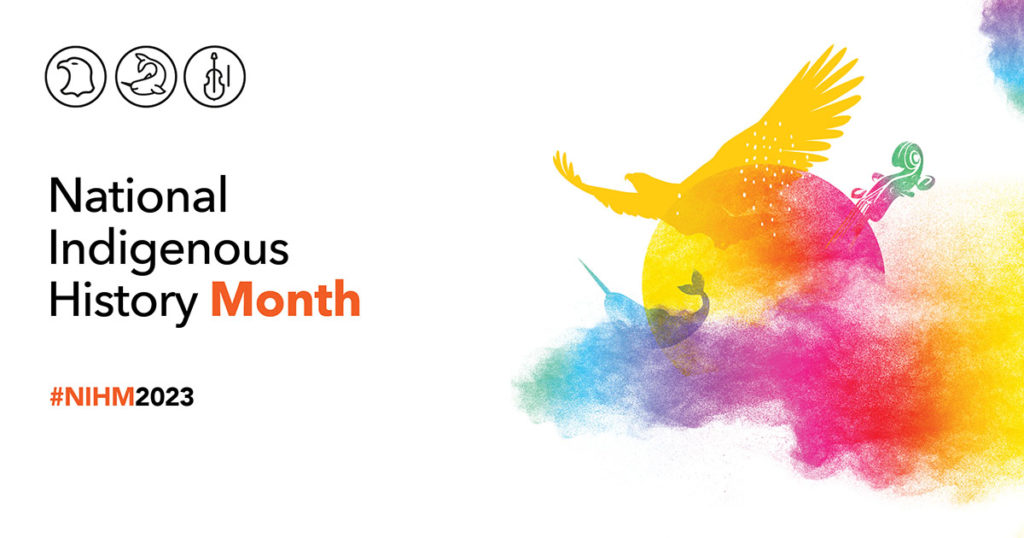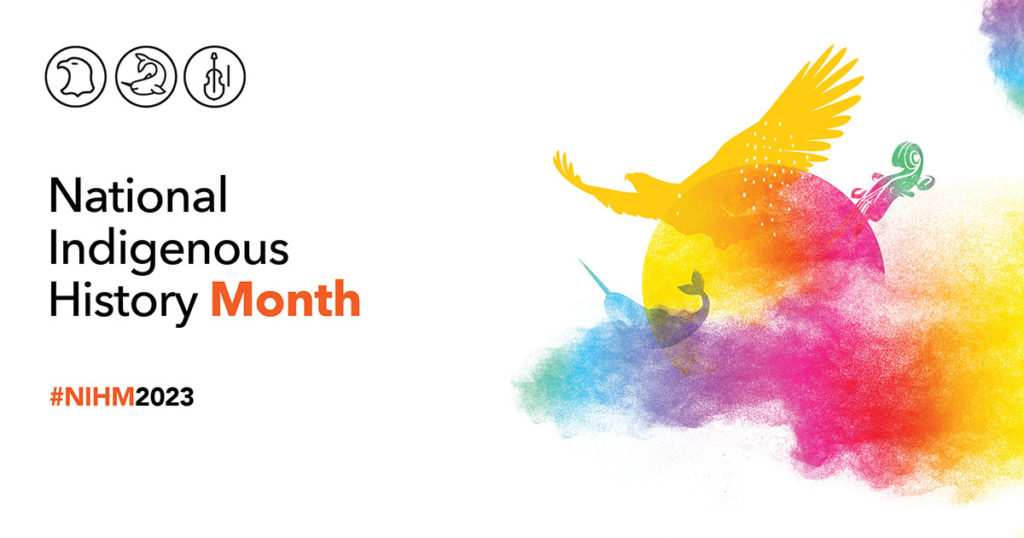National Indigenous History Month & National Indigenous Peoples Day

In Canada, June is dedicated to National Indigenous History Month, providing a valuable occasion to delve into the distinctive cultures, traditions, and experiences of First Nations, Inuit, and Métis peoples. June 21st is also National Indigenous Peoples Day. It serves as a moment to pay tribute to the narratives, accomplishments, and enduring strength of Indigenous Peoples, who have inhabited this land since ancient times and continue to shape the ever-changing landscape of Canada.
At the New Canadians Centre, we respectfully acknowledge that we reside on the ancestral lands of the Anishinaabe Mississauga, adjacent to Haudenosaunee Territory. We hold deep respect for the enduring presence of First Nations and Métis Peoples in Ontario, and we express our gratitude for their stewardship of the Earth and their teachings. This recognition is not limited to a particular time but extends to every day of the year.
While we observe Indigenous History Month in June, it is crucial to emphasize that allyship is an ongoing commitment. If you identify as non-Indigenous, we encourage you to continuously engage with the wealth of valuable resources available and honour the rich history, heritage, and diversity of Indigenous peoples. Educate yourself, initiate meaningful conversations with your family, friends, and community, and develop a comprehensive understanding of what it means to be an ally. Dr. Lynn Gehl’s Ally Bill of Responsibilities is an informative guide to support your learning journey. However, it is your responsibility to educate and inform yourself actively.
More resources:
- Know whose land you are on. If you are non-Indigenous, you are occupying land that is being colonized. You are a settler. To have a greater understanding of the land’s original caregivers and history, visit Whose Land, an educational tool and interactive map. It is useful for understanding Indigenous treaties and communities across Canada. The website offers videos of appropriate land acknowledgments as well as some great Frequently Asked Questions.
The Canadian Association of University Teachers (CAUT) also has a Guide to Acknowledging First Peoples and Traditional Territory.
- Be culturally sensitive. This is past and present ongoing trauma. It’s important to be sensitive when posting/sharing/discussing content that could trigger and upset People.
- Know the protocol. Take the time before going to powwows or a ceremony to understand the protocol through research or by kindly asking a volunteer or worker once you’ve arrived.
Read A Guide to Taking Your Family to a Powwow for the First Time (available on CBC) for some powwow protocol.
- Understand what allyship to Indigenous people can look like. An outline of allyship and responsibilities by an Anishinaabe-kwe scholar can be found in the Ally Bill of Responsibilities. If you’re concerned about practicing allyship appropriately, reviewing this is helpful.
- Read the Truth and Reconciliation Commission of Canada: Call to Action Report. The TRC was a part of the Indian Residential Schools Settlement Agreement and had a mandate to document and prepare a comprehensive historical record of the policies and operations of the schools and produce a report that includes recommendations to the Government of Canada. The TRC completed its work in 2015.
- Understand our full history and how it affects us today. The University of Alberta offers a free, in-depth 12-lesson course called Indigenous Canada from their Faculty of Native Studies. This course explores key issues facing Indigenous peoples today from a historical and critical perspective highlighting national and local Indigenous-settler relations. Last year, Habitat Canada staff took the 4 Seasons of Reconciliation, a paid three-hour multimedia course from the First Nations University of Canada, to learn about the history and culture of Indigenous communities in Canada, the history of residential schools, and treaties around the country.
- Donate to survivors of residential schools and organizations working to further reconciliation:
- Canadian Roots Exchange
- First Nations Child and Family Caring Society
- Indian Residential Schools Survivors Society. In addition, IRSSS has a 24-hour crisis line for anyone experiencing pain or distress as a result of their residential school experience: 1-866-925-4419.
- Legacy of Hope Foundation
- Orange Shirt Society
- Reconciliation Canada
- True North Aid

